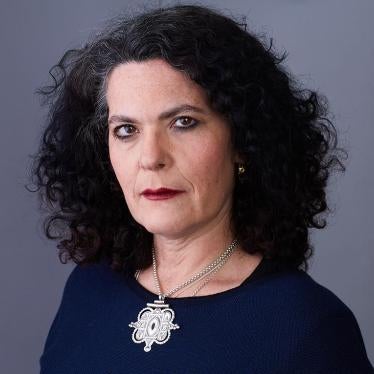On Feb. 3 dozens of, Afghan women’s rights activists took to the streets of Kabul, marching to the ministry of women’s affairs to protest their new president, Ashraf Ghani, and chief executive officer, Abdullah Abdullah, over their broken promises to appoint four women to the new cabinet. The protest demonstrates how determined these activists are — walking through the cold, wintery streets — to hold on to the rights they’ve laid their lives on the line for. It also highlights how worried they are that this new government will idly stand by as women are excluded from the political process and these hard fought rights — education, healthcare, employment, and political participation — are rolled back.
Ghani has said many of the right things on women’s rights. On the campaign trail, he said: “I consider women’s participation in all spheres of life absolutely essential. We must get enforcement of women’s rights.” As a candidate, Ghani made specific promises on women’s rights, including the promise to appoint four women to the cabinet and a woman to the Supreme Court. Now as president, his agenda prioritizes economic development, and he regularly speaks eloquently about the importance of women’s economic participation.
Both he and Abdullah, his partner in Afghanistan’s coalition government, during campaign season signed a petition prepared by a network of women’s rights groups endorsing demands that included appointing women to 25 percent of key government posts in the cabinet, local government, ministries, embassies, and international missions as well as judicial and legal positions, and making the civil service 30 percent female.
In return for these promises, some prominent women’s rights activists openly and strongly supported Ghani’s candidacy. Others watched from the sidelines but allowed themselves to hope that under Ghani, a Western-educated former World Bank official, Afghanistan’s women’s rights movement could find greater support than under his predecessor, Hamid Karzai, who occasionally undermined women’s rights.
There were both encouraging and worrying signs for women along Ghani’s path to the presidency. As the election turned into an extended debacle, with allegations of fraud rampant on both sides, and U.S. Secretary of State John Kerry repeatedly flying to Afghanistan to broker compromise, activists noted a distinct lack of commitment to women’s participation in the political process. They pointed proudly to the 38 percent of voters who were women — women who had to weather security threats, long journeys, and hostility from their own families in order to vote. Where was the seat at the table for these women to help resolve this election and run-off crisis?
On the brighter side, there was the president’s wife, Rula. At Ghani’s inauguration, he publicly thanked her, saying: “She has always supported Afghan women and I hope she continues to do so.” For a Western politician, this might be a line in a canned speech, but in Afghanistan, a country where women continue to struggle even for the right to move freely outside their homes, it was groundbreaking. As comparison, during Karzai’s years as president, his wife, Zeenat, a qualified physician, was almost never seen or photographed. Ghani’s acknowledgement of his wife was not uncontroversial — some Afghans criticized him for endorsing a public role for her, especially as she is a Christian originally from Lebanon.
Once the election-wrangling was over and the dust settled from the inauguration, women’s rights activists settled in to watch for what the new government would do to keep its promises to women.
So far they haven’t liked what they’ve seen.
When Ghani, along with Abdullah, nominated their cabinet on Jan. 20 after months of delay, the nominees included three women — nominated as heads of the ministries of higher education, women’s affairs, and communications — not the promised four. The delay was a result of strife within the coalition, but Abdullah had also pledged that there would be four women in the cabinet. He even joked in early December that four female cabinet members was the only thing he and Ghani agreed on. They offered no explanation for their failure to nominate the promised quota. The three female nominees were subsequently rejected by the Afghan parliament based on technical reasons, including education and nationality requirements, however, many male nominees were also rejected — only eight of the 25 nominees were approved.
Activists are deeply worried about what this first broken promise says about Ghani and Abdullah’s commitment to women’s rights. They are asking why only three women were nominated and then didn’t do more to ensure that these nominees would pass parliamentary scrutiny. They fear that replacement nominees may include even fewer women. Despite this, the activists are not retreating and are now demanding that Ghani and Abdullah allocate 38 percent of not just ministerial posts but all senior government posts to women, to reflect the 38 percent of women who voted.
Afghanistan’s international donors, chief among them the United States, which spent $65 billion over the last six years to fund the Afghan security forces alone, have been very quiet. They express optimism about the Ghani/Abdullah government, including hopes for a deeper support for human rights than under Karzai. In private meetings, donors counsel patience and point to enormous challenges the government faces: a rising insurgency, a collapsing economy, a tense and fragile coalition, and a challenging relationship with parliament. Troop-contributing nations, chief among them the United States, are deeply invested in this government’s success, as installing it is the centerpiece of their exit strategy from Afghanistan.
Many women have made it clear they are desperate for the Ghani/Abdullah government to succeed, not least the protesters taking to the streets last week over the exclusion of women from the cabinet. Over the last 14 years, in the face of threats, assassinations, and insecurity, Afghan women’s rights activists have risked their lives in the fight for their rights. They are not about to stand down now. Afghanistan’s foreign donors should explicitly back their demands, and Ghani and Abdullah should remember and honor their promises.









